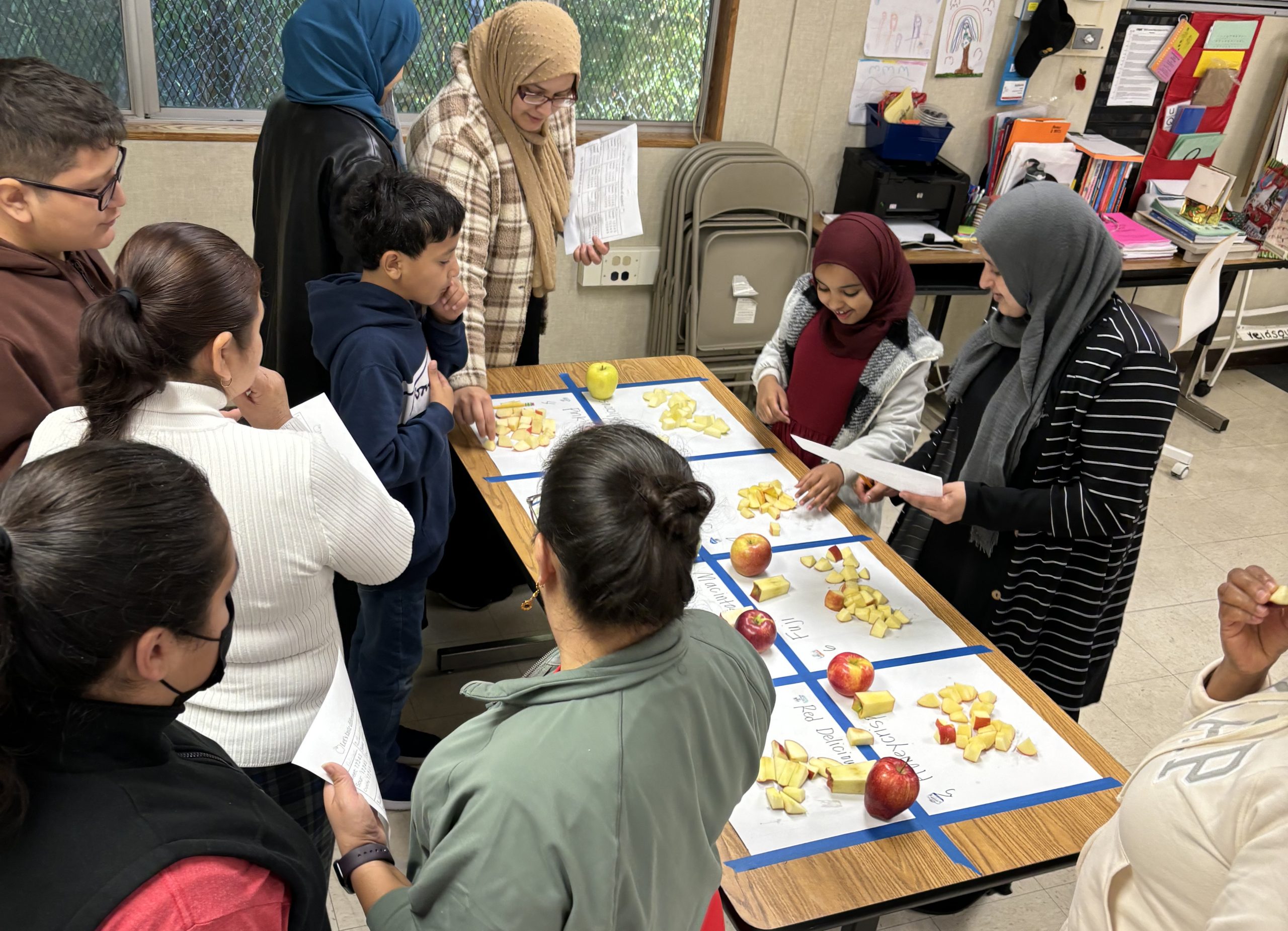OACE’s Family Literacy program helps parents support their children

Being able to communicate is something many people take for granted. Talking with your doctor, parent-teacher conferences and reading important documents all require an understanding of English, something Latifa Aldabashi didn’t have when she came to the US from Yemen eight years ago.
“When I first came to America, I didn’t know a lot of things, I didn’t get any information or study English in my own country,” she says. “I didn’t know how to speak English, I didn’t understand the people who were speaking to me in English. But now I can understand anything. Sometimes it’s harder, but it’s way better than before.”
Thanks to Oakland Adult and Career Education’s (OACE) Family Literacy program, Aldabashi has been able to improve her English skills to both her family’s benefit and her own. The classes are designed to enable parents to play an active role in their children’s education and also includes digital literacy so parents are able to support their children’s learning using the computer and online resources.
“Now I can do homework with my daughter. At first I didn’t try to do it because it was hard for me, but now I can do it.”
Latifa Aldabashi, OACE Family Literacy student
“Now I can do homework with my daughter. At first I didn’t try to do it because it was hard for me, but now I can do it,” Aldabashi says. “My daughter benefited a lot, she speaks to me in English, I understand her and I speak with her. My family also benefited because I can read any kind of documents or online information, I don’t need to get any help from my friends or family like before.”
The Family Literacy program builds integration with the host school site to teach English in the context of helping OACE students better partner with their child’s teachers and school staff, and is one of several English as a second language (ESL) courses OACE offers to help students improve their English reading, writing and speaking skills. All ESL classes are free, as is daycare for Family Literacy students with children between 2 and 5 years old.
“The ESL is contextualized to help them engage with the child’s school: They learn how to interact with the school, how to access resources, how to help their child get through the school system,” explains Kim Jones, OACE director. “Think about it: You come here, you’re new to the country, you have your kids in a school system you know nothing about … it’s something that a lot of people have the privilege to not think about.”
Through the Family Literacy program, parents learn to communicate with school staff and develop language skills to become more involved in their children’s learning.
Aldabashi says teachers were very patient and their encouragement made a world of difference for her. Today, she’s still working on her English skills at Alameda College. In the long term, she hopes to improve her English skills enough to find a job.
“At first I was afraid to talk, afraid to say something wrong while speaking, but they told me I should be learning from my mistakes and right now I can speak better,” she says. “I want to make my dreams come true and I want to work in the future as well.”
For more information on ESL classes and more, visit www.ousd.org/adult-and-career-education or call 510-879-1400.
Written by Anne Stokes
| Regions | Classes & Topics |
|---|---|
| Bay Area California | English as a Second Language |